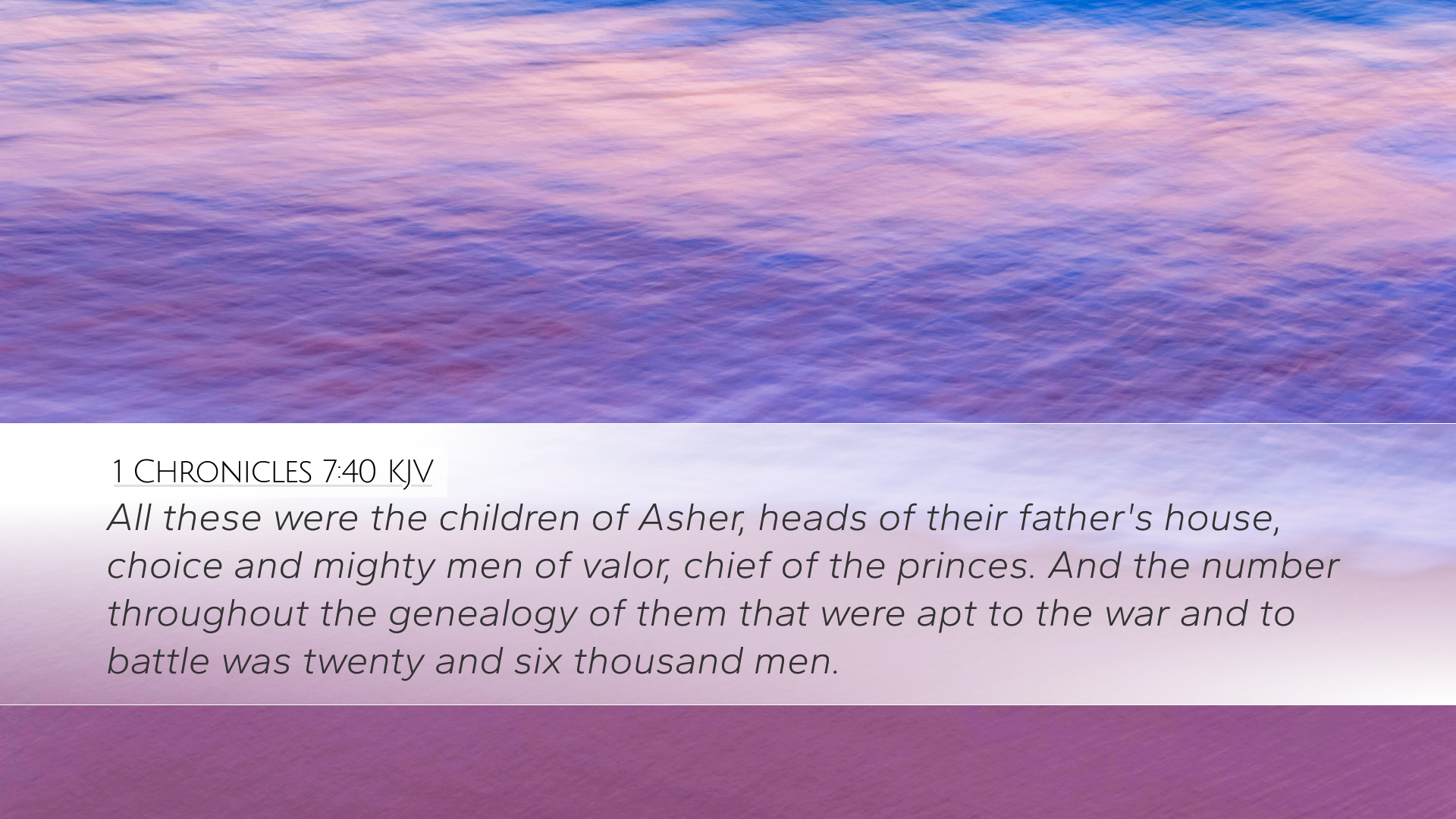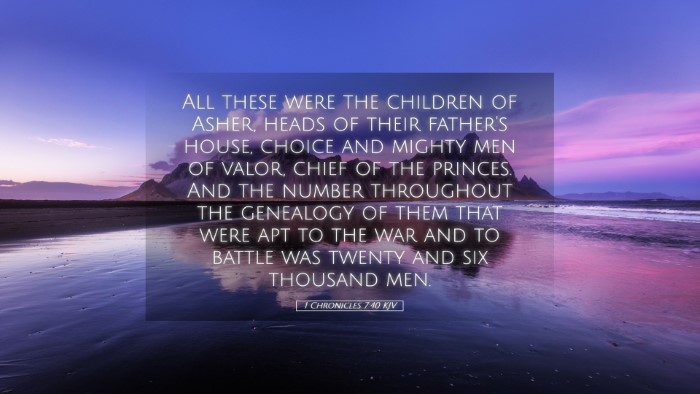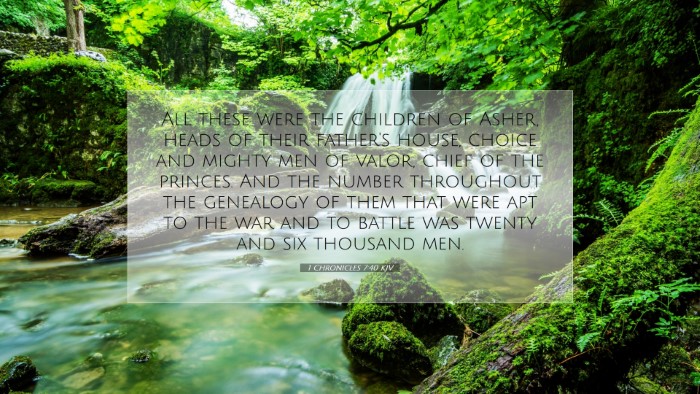Commentary on 1 Chronicles 7:40
Verse Overview:
1 Chronicles 7:40 reads, “All the sons of Asher, and their families, were described by their genealogies and ages, and they were all mighty men of valor, chief of the princes, and their number, according to the genealogies, was twenty-six thousand.” This verse serves as a record of the family line and military prowess of the tribe of Asher, emphasizing their importance among the tribes of Israel.
Genealogical Significance
Matthew Henry's Commentary: Matthew Henry highlights the importance of genealogies throughout the Scripture, particularly in tracing the heritage of God's people. He suggests that genealogical accounts serve a dual purpose: they affirm God’s faithfulness in preserving His promises, and they provide historical context for understanding the characteristics of various tribes.
Henry notes that Asher’s lineage not only positions them within the broader context of Israel’s tribes but also highlights their valor and noble heritage. The mention of their genealogies reflects a deeply rooted tradition among the Israelites, where ancestry and familial connections conveyed identity and purpose.
Mighty Men of Valor
Insights from Albert Barnes: Albert Barnes expands on the description of the sons of Asher as "mighty men of valor." He interprets this designation as indicative of their military strength and prowess, suggesting that their reputation was significant during the time of David's kingship. Barnes emphasizes that this valor is not merely physical might, but also speaks to their loyalty and integral role in the defense of Israel.
Moreover, Barnes points out that these men were "chief of the princes," indicating their leadership within the tribe and their contribution to national affairs. Their military capabilities would have been essential during times of conflict, reflecting an image of a tribe that was not only populous but also influential in governance and protection.
Implications for Modern Readers
Adam Clarke's Commentary: Adam Clarke reflects on the implications of the verse for contemporary readers. He suggests that understanding the traits of the tribe of Asher can inspire believers today to embrace qualities such as bravery, commitment, and leadership in their respective callings. Clarke challenges modern believers to consider what it means to be "mighty in valor" in their spiritual lives and communities.
Clarke also notes the importance of the number mentioned—twenty-six thousand. In biblical tradition, numbers often have significance beyond the literal, symbolizing completeness or divine order. The size of the tribe could thus represent a community that was not only physically robust but also spiritually significant to Israel’s destiny.
The Role of Asher in Israel's History
When examining the role of Asher further, the commentaries suggest that this tribe represents qualities of wealth and prosperity, likely deriving from the abundant land they settled. Asher's inheritance included fertile areas, which facilitated economic stability. The tribe's blessings were material as well as spiritual, demonstrating the comprehensive nature of God's favor. This duality is essential for understanding the holistic blessings promised to the Israelites.
Spiritual Applications
Theological Reflections: Reflecting on 1 Chronicles 7:40 prompts theological questions regarding God's providence in selecting specific families and tribes for His purposes. Commentators advise pastors and students alike to consider how such genealogical details inform our understanding of divine election and purpose.
- God's Sovereignty: The careful record of genealogy aligns with the theme of God’s sovereignty over history. Each tribe had a role to play; recognizing this provides assurance that each individual today also has a purpose within God’s divine plan.
- The Value of Tradition: The emphasis on family heritage invites reflections on the importance of spiritual heritage in modern communities. Just as Asher's legacy influenced their identity, so too should today’s believers honor their spiritual ancestors.
- Call to Leadership: The prominent role of Asher’s leaders can inspire a call to ecclesiastical leadership among current believers, emphasizing that the qualities exhibited by the sons of Asher are relevant and applicable in today’s ministry and church life.
Conclusion
In conclusion, 1 Chronicles 7:40 serves a multifaceted role within the biblical text. By documenting the legacy of the tribe of Asher, it reinforces themes of divine promise, genealogical importance, and the attributes required for leadership. Insights from Matthew Henry, Albert Barnes, and Adam Clarke provide a robust framework for understanding this verse’s significance.
As we study this passage, we are reminded of our identities within the larger story of God’s covenant community. The call to personal and communal valor remains vital, as believers today strive to fulfill their roles in the body of Christ with the courage and faith exemplified by the mighty men of Asher.


